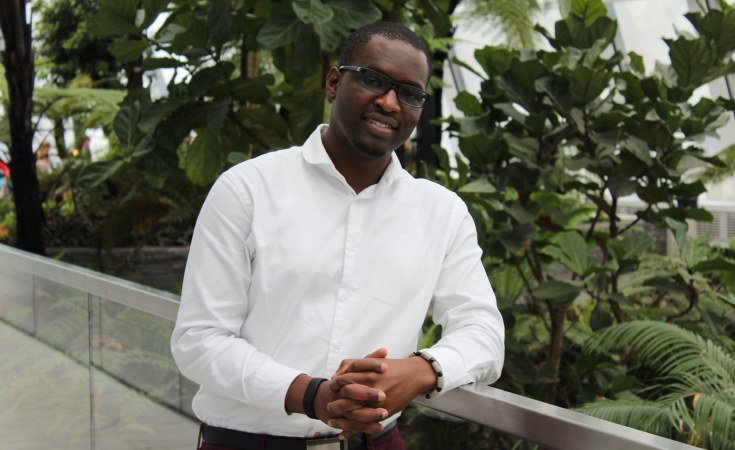Machines might scare policymakers from Brussels to Washington, but artificial intelligence could yield a significant developmental dividend in the developing world. In African markets, the technology behind Alexa and Siri can be harnessed to diagnose illness or address traffic gridlock. One of the most transformative applications of artificial intelligence (AI) is in financial technology, where global investment has risen 38% over the last year. Machine learning, whereby algorithms make predictions and improve based on large amounts of data, is often relegated to the realm technologists and the elite; but for the two billion unbanked adults worldwide, this technology could light a path out of poverty by helping traditional lenders approve loans using hundreds of non-traditional data points. AI has the capacity to add value at the individual, small business, and the large corporate level alike across Africa.
Analytics companies have grown wealthy selling consumer data to marketers hungry for customer insights. But today, private data marketplaces such as DataWallet and Meeco allow individuals in the West to sell their personal data directly to buyers. These markets give sellers more control over how their contacts are shared or who can scrape their debit card transactions, for example. These platforms give sellers a bird’s-eye view of their imprint, helping them understand that their behaviour has immense monetary value -- and so do they. Data is just as valuable yet harder to come by in emerging markets, where companies struggle to reach potential customers in the absence of granular insights about them. Across Africa, comprehensive, current, and accessible data about public sentiment could have wide-reaching policy impact as well as more traditional, commercial value. Startups such as Kenya’s mSurvey have stepped in, using mobile phones to build up-to-date profiles of local consumers. To truly unlock Africa’s consumer data, companies on the continent must develop their own AI-driven data marketplaces, incentivizing customers to opt-in and share their consumption habits.
Across emerging markets, SMEs have debunked the myth that it is risky to extend credit to the poor. For three decades, Grameen Bank has amassed troves of data on who defaults and lent billions of dollars of microcredit with default rate of less than 1 percent. To assess creditworthiness, traditional banks in Africa require the detailed financial statements and conventional data points that those in developed economies do. This gives the world’s 800 million small businesses little chance to gain access to credit. Enter machine learning, which collects and analyzes hundreds or thousands of pieces of data in minutes compared with the dozens of traditional data points banks look for. In 2012, Commercial Bank of Africa and Safaricom partnered to launch M-Shwari which offered digital banking and short-term credit services tailored to the poor in Kenya. In just 5 short years, the service has grown to 20 million customers and almost a billion dollars in micro-loans disbursed, supported by automated credit assessments and instantaneous approval decisions. Faster, cheaper, computing power has helped lenders leverage more information from large, complex data sets as well as alternative data points such as social media postings, mobile money transactions, and utility bill repayment. Using personalized scoring and risk management, alternative lenders can better predict a borrower’s prudence and stability, lend to clients with a higher risk profile, and still boast lower default rates than traditional banks issuing securitized loans. Companies like OneFi and Tala have empowered small business owners in African markets, extending credit by placing a value on data such as time spent reading the application’s terms and conditions, the number of moves in recent years, and rent as a percentage of income. With better predictive models tapping into the alternative data that does exist, AI is helping small business owners circumvent the traditional data that does not.
AI is powerful at the corporate level because small business is big business. While the West frets that AI will destroy millions of jobs, emerging markets should embrace predictive technology because it extends resources to small businesses. SMEs are engines for global job creation, with new businesses generate twice a many jobs as incumbents. In Africa, young companies with less than 20 employees create the most formal sector jobs. Because African markets also boast the highest share of adult business owners, extending credit to more of them means more small businesses can scale and contribute to GDP. Lenders reluctant to lend to SMEs will find themselves edged out of the industry over time by tech-driven upstarts with more inclusive credit scoring criteria. Africa’s population is growing faster than jobs created. To address the gap, we must adopt innovative technology to generate access to the finance, the key constraint for SME growth across the region.
Artificial intelligence is not a tool to be feared, but one to be welcomed and wielded by individuals, small businesses, and corporates. The result is an economic trickle-up effect whereby individuals gain by monetizing their data, marketers can develop comprehensive consumer insights, lenders can tap into new customer segments, and markets grow through job creation and more efficient use of resources. Technology may not be a cure-all, if emerging markets are ever to finally ‘emerge’, the catalytic power of non-traditional predictive models must be brought out of the shadows to the fore.
Timothy Kotin is a Ghanaian entrepreneur and the co-founder SuperFluid Labs, a data analytics platform based in Ghana and Kenya.


